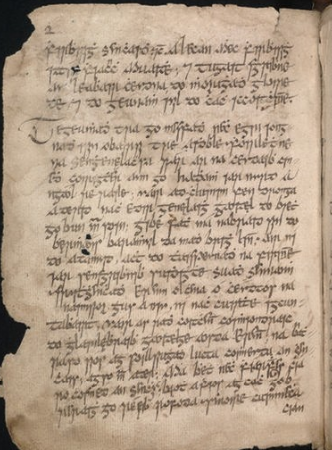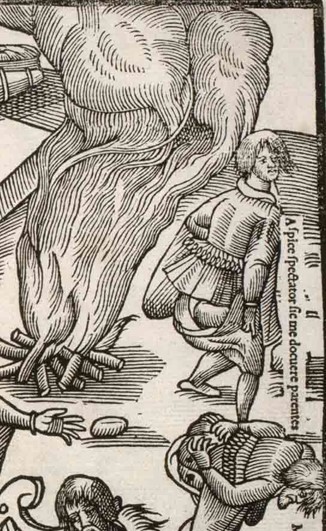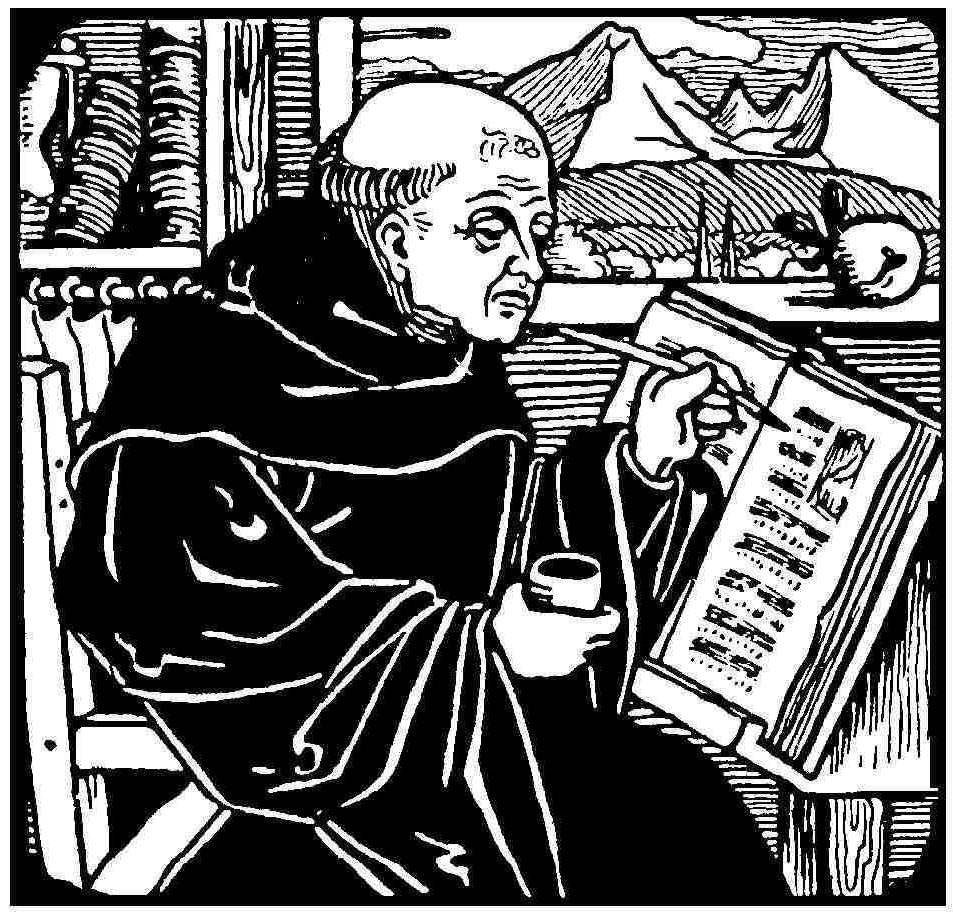I never studied history academically. In fact, my last formal schooling in the subject ended at the age of fifteen. So, like all autodidacts, I have a certain twitchiness about the lacunae in my knowledge (I kept up the Latin). I’ve just finished Dáibhí Ó Cróinín’s Early Medieval Ireland 400-1200 (2nd ed. Longman, 2016), in an attempt to fill in some of the gaps. (Full disclosure: Dáibhí was a school friend of mine more than fifty years ago). The book isn’t always an easy read, though there some nice flashes of impish humour.

What really shines is the treatment of sources. The second edition includes the best short account I’ve read of the potential of early Irish genealogies. These things are vast. Nothing on their scale exists anywhere else in the world, and they have puzzled and frustrated historians and genealogists for generations. The earliest surviving manuscripts date to the 1100s, but the historical individuals they cover go back to at least the fifth century, 600 years earlier, and of course the makey-uppy individuals go back to the Garden of Eden. They cover tens of thousands of families, some in biblical lists of “who-begats”, and others in great spreading collateral branches. But they include not a single date and are distorted by centuries of revision and rewriting, as one ruling family usurped another and needed to show their ancient legitimacy. So using them as historical or genealogical sources is almost impossible. Half may be true: but which half?
What the book does is show how it is (sometimes) possible to cross-reference a genealogy with some of the Irish annals, for example to identify a year of death and thus an entire extended family. This is not easy, to put it mildly, requiring fluency in Old Irish and Latin, familiarity with continental medieval manuscripts, and the patience of a saint, a constellation of qualities hard to find in one person. Step forward Dáibhí.

Miraculously, the wonderful section on medieval sources is part of the free sample download on Kindle. Sorry Dáibhí.
A more general point I took from the book is the extent to which Gaelic Irish surnames encode the story of medieval Ireland. Yes, all of those names are patronymic, Ó, ‘grandson of’, and M[a]c, ‘son of’, in a way that shows just how important descent and genealogy was in Ireland when hereditary surnames began in the 10th and 11th centuries. But the stems of the surnames, the personal names of the individuals from whom descent is being claimed, embody a world that existed long before there were surnames.
There was a lot of fighting in that world. Warrior-derived surnames abound: Cath means ‘battle’, with the personal name Cathán meaning ‘battler’. Ó Catháin, ‘grandson of the battler’, arose in at many different areas and was anglicized as ‘Keen’ (Co. Down), as Kane and Keane (Cos Derry and Galway), as Kane in Mayo … That most Irish of all names, Murphy, in modern Irish Ó Murchú, comes from the personal name Murchadh, Mara, ‘sea’ and Cú, ‘hound’, so ‘sea-fighter’. There must have been a lot of them: the surname arose in at least seven different areas. The many other warrior surnames include Coakley, Conville, Donoghue, Dooley, Duncan , Falahee, Ganley, Glancy, Hanrahan, Hargy, Horohoe, Hourihane, Kemp, Kimber, Lambe, McCamley, McCann, Clancy, McDonagh, McEvilly, McKinley, McMurrough, Loane, Looney, Shanley, Staunton , Moraghan, Murchan, – all based on fighting.

We were also quite pious between the fifth and ninth centuries, though our attitudes to marriage and inheritance scandalised celibate British and Roman fellow clerics (Ó Cléirigh, grandson of Cleary, from Cléireach, a cleric who shouldn’t be having grandchildren). Surnames actually including the word “Monk” (manach) include the anglicised Moynes, Monaher, Monaghan, Mannix, Manahan, Managh, McEvaney, McCavana … Plenty of offspring there. Much more numerous are the Mac Giolla (‘son of the devotee of ‘) surnames: Gilboy, Gilbride, Gilchrist, Gildea, Gilfedder, Gilfoyle, Gilhooley, Gillane, Gillard, Gilleese, Gillespie, Gilligan, Gilmartin, Gilmore, Gilmurray, Gilsenan and many more. My favourite are the Mul- surnames. The Irish maol literally means ‘bald’, and was used to refer (disrespectfully?) to churchmen because of the distinctive tonsures they sported. Hence Mulcahy, Mulderrig, Muldoon, Mulhall, Mulholland, Mullally, Mullane, Mullarkey, Mulleady, Mullen, Mulligan, Mulready, Mulrooney, Mulvey, Mulvihill … If you know a middle-aged man with one of these names who’s going bald, cheer him up by telling him about the Irish tonsure.

The Vikings first came to Ireland at the end of the 8th century and left plenty of progeny bearing personal names that went on to become the roots of hereditary surnames: Doyle (Dubh Gall, dark foreigner, Danish apparently), Groarke (Hrothrekr, Norse), Higgins (Mag Uiginn, son of the viking), Loughlin (Ó Lochlainn, grandson of the viking), McManus (Mac Maghnuis, from Mánus, a Norse forename, Reynolds (Mac Raghnaill again Norse), Sugrue (Sigfrid), Beirne (Bjorn), Broderick (Brudar).
I could go on. In fact I have. If you want more about surnames coming into English, there’s a series of new rants on YouTube. Dáibhí’s book is on Amazon. Most of the medieval annals are online at the University College Cork CELT website. Some of the genealogy manuscripts are at University College Dublin’s Irish Script on Screen site.
So interesting! Thank you John Grenham.
I have the 1st edition – must check it out to see if I should update!
By the way, what about the “learned” families – as in the Uí Duibhgeannáin …
And many of the names beginning with Gil- can also begin with K- as in Gilbride and Kilbride. Etc, etc. No wonder people get confused tracing names over here.
Thanks, John, fun article as always!
With reference to the name
O Cleirigh this is the oldest surname in the world. It comes from the old diocese of Kilmacdo in South Galway namely the territory of Aidne. The last king of Aidne was Tigernan O Cleirigh killed about 600 A D
Thank you Mr. Clarke from Ms/Dr. Clarke! And my brother and others in my family are/were Tom Clarkes!
Tom G Clarke that is fascinating about O’Cleirigh being the oldest surname in the world. Doesn’t the, Greeks, Romans, Middle East, etc. and their surnames have quite an ancient history too?
Do you have anything on McElveen, MacElveen, MacIlvin, MacIlveen, MacIlbain, etc? The early census’ spelled what they heard. Could be Irish from the Scots. And probably in Down or Antrim.
I am the maternal granddaughter of a McEveen and Stacy, also of a Burns and Craig on my father’s side. British Isles all around! We settled America in the 1600s. No late bloomers we! Probably kicked out by the English (except for one, Sir John Preston, my 10th great grandfather on my father’s side, was a buddy of the King in the 1500s). One of his descendants came to America and served with George Washington against the English in the Battle of Delaware. Everyone one else were commoners, Quakers, and Presbyterians, I think.
I have enjoyed your blog notes. Also, I may try to work my way through your childhood friend’s book!
Names are a tough business in Ireland. My surname, I assumed had come from O’Maoloein. But through research, including DNA research, I discovered close DNA relatives with names such as MacGlone, McGloin, and many other names that derive from the Gaelic name Mac Giolla Eoin. Therefore it’s never very black and white. Names were anglicised into a basic form, insomuch that many modern names now have crossovers in origin.
Love this especially the name Loughlin or Loughlan —-a paternal 2GG, a maternal GG and a maternal 3GG all share this viking name. Always thought it meant land of lakes in Norway
Another “cath”-derived surname, and among the oldest (as I understand): Cahill. I have a major Cahill-related question: why is there a whale on the Cahill crest, so unusual? Could the Cathal from whom the family descended possibly have been an enormous sort of guy? And one who spouted – verse? genealogy? furious insults? incitements to battle?
Surname variants and their potential origins are always so interesting to me when coupled with exhaustive Next Generation Sequencing (NGS) testing of Y chromosomes of men carrying these surnames. In the last 6-7 years, it has been exciting to see some of these variants cluster together and share unknown common patriline ancestors in periods that coincide with some of the medieval Irish genealogies. My only lamentation is to have more men living in Ireland test at these levels (instead of most diaspora descendants to the U.S., Canada, Australia, etc.). In Doherty (O’Dochartaigh) surname project, we see hundreds of tested men with various O’Dochartaigh spelling variants and Sept offshoots (such as McDevitt/McDaid) cluster together within the appropriate periods. -Dr. Zack Daugherty, Volunteer Doherty Project Administrator
Very interesting, would love to see more like this explained in a simple manner .
Looks to be a good site!
We want to give it a try!
John. Great read and very informative as always. But you skipped over the earlier Norman influenced surnames and jumped right to Vikings. We know for sure we have a direct Norman influenced surname – Curtis. But family tree puts the Y solidly in the Dal Cas community, probably mutating around 6oo AD, early enough to have no remaining peers who have tested FT. So did distant forebearers serve a societal function so politely that they inherited a descriptive nickname from Conquerers of the day that stuck? Very possibly. All males in line are gentle thoughtful gracious men. And we’re not the only Irish Curtis. I would love to understand the origins of the large Catholic population of Curtis from Louth, etc. Can you give me any guidance on finding out more about that? I have not had any luck so far. Thanks
Thank you! My favorite Viking name is Histon – Ó hOistín. https://www.johngrenham.com/findasurname.php?surname=Histon